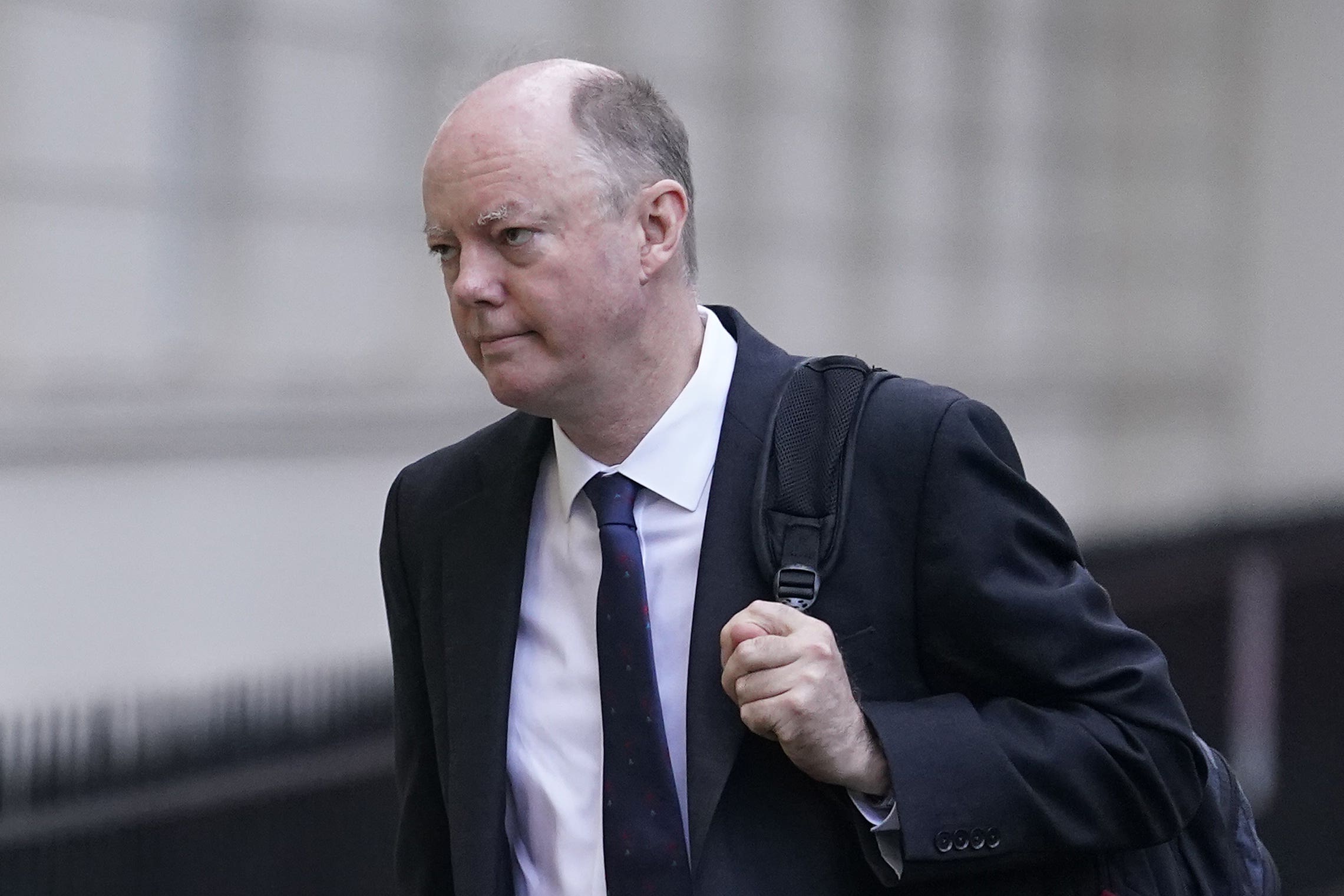Failing to cancel mass gatherings ‘logically incoherent’ to public, says Whitty
Professor Sir Chris Whitty took ownership of the advice given to the Government in the early days of the Covid-19 pandemic.

England’s chief medical officer has admitted that allowing mass gatherings such as sporting events in the early days of the pandemic was “logically incoherent” to the public.
Professor Sir Chris Whitty said he is “taking ownership” of the advice given by the Scientific Advisory Group for Emergencies (Sage) to the Government in March 2020, that the risks of even crowded outdoor events were relatively low.
At the time, the likes of the Cheltenham Festival, which attracts hundreds of thousands of racegoers over four days, was allowed to go ahead despite the emerging crisis.
Giving evidence to the UK Covid-19 Inquiry – which is examining the UK’s response to the pandemic – Sir Chris said not enough attention was paid to the consequences of allowing large outdoor events to continue.
It is in a sense technically correct and logically incoherent to the general public, quite reasonably
He added: “What we really were not paying enough attention to, and it is sort of obvious with hindsight, is the message this was sending – that seeing mass gatherings going on signalled to the general public that the Government couldn’t be that worried because, if it was, it would be closing the mass gatherings.
“The problem was not the gatherings themselves, which I don’t think there is good evidence that they had a material effect directly, but the impression it gives (the public) of normality at a time when you are trying to signal anything but normality.
“It is in a sense technically correct and logically incoherent to the general public, quite reasonably.”
Last month, former chief adviser to then prime minister Boris Johnson Dominic Cummings told the inquiry there was a “twisted logic” to allowing mass gatherings that spoke to the lack of preparedness for a lockdown in March 2020.
When asked about the decision to allow Cheltenham Festival to go ahead, he claims Mr Johnson was told at the time “if you banned mass events PM then people will just go pubs instead and that will be even worse”.
He added: “Of course now the obvious question is why are they all going to pubs. But remember, there was no plan for lockdown on the 9th and the 10th of March.
“There was no plan for stopping all of these things.
“So if you’re not going to close pubs, then you can see the kind of twisted logic of ‘well, don’t stop things like Cheltenham or football matches and everything else’.”
A submission to the probe by the British Medical Association, also made last month, also claimed the failure to cancel mass gatherings and large sporting events in March 2020 led “to higher cases, hospitalisations and very likely deaths”.